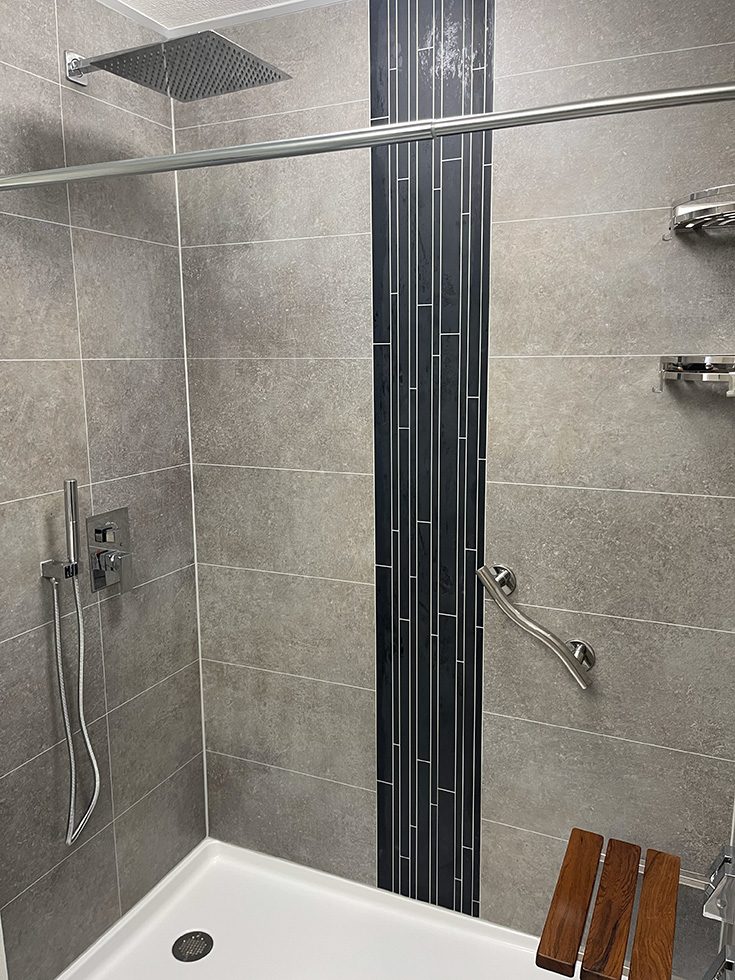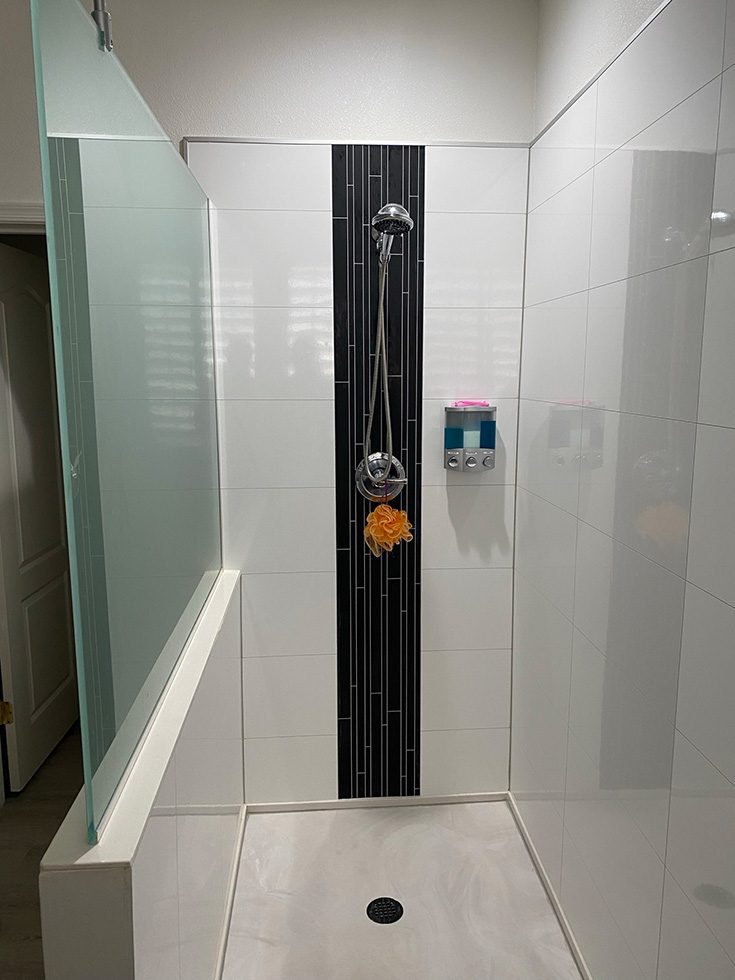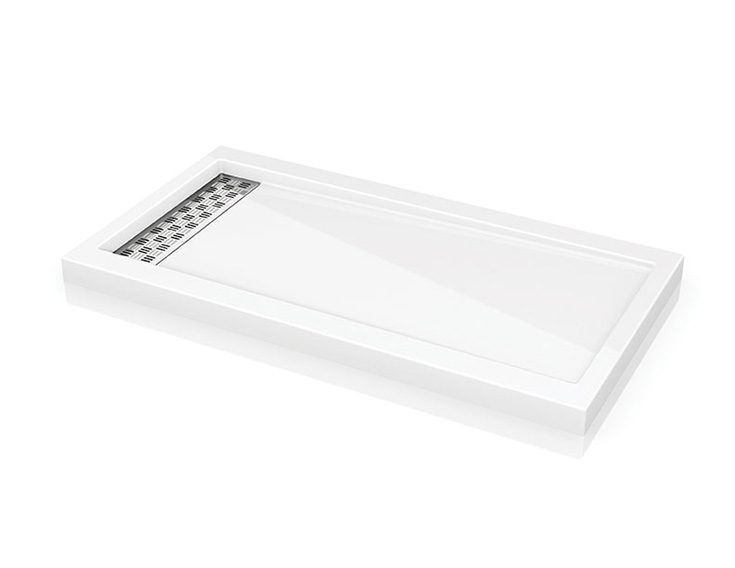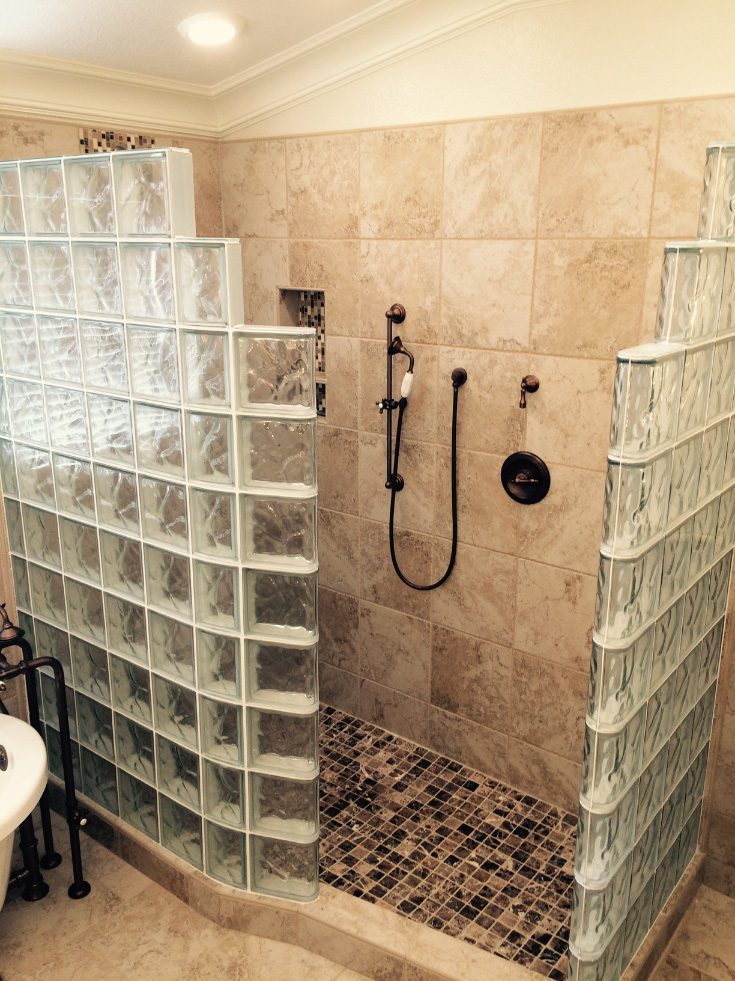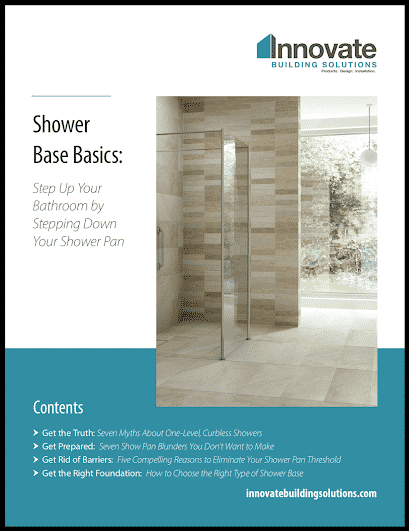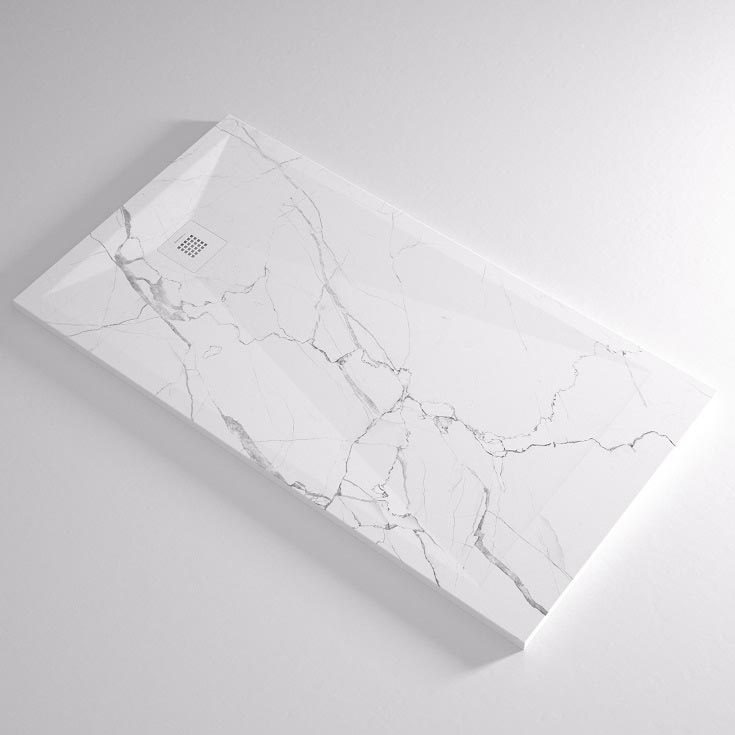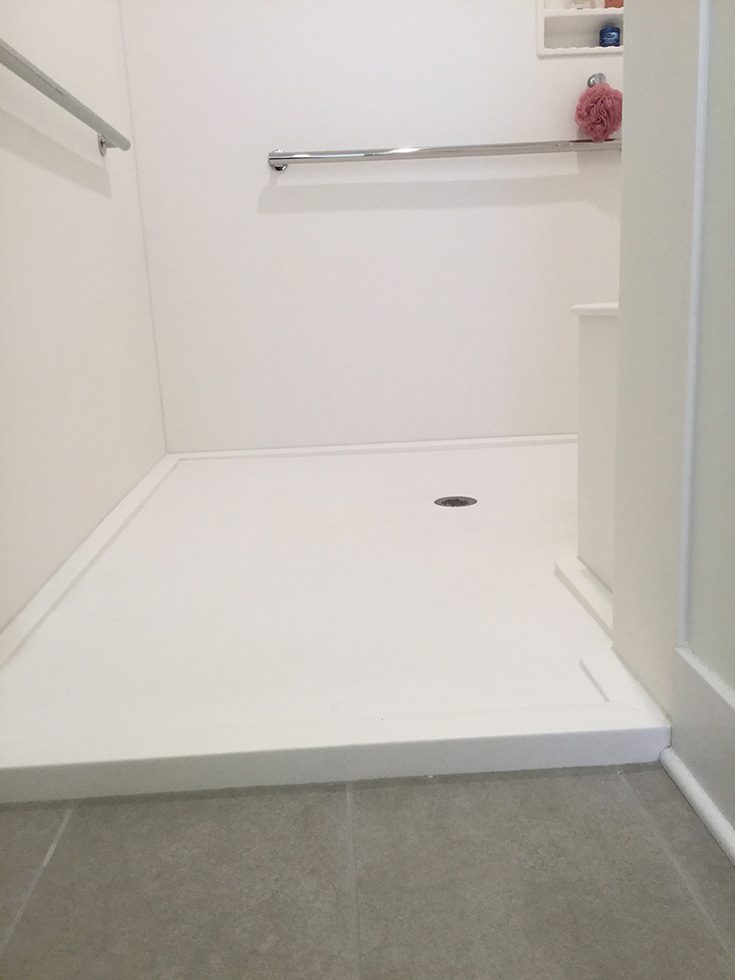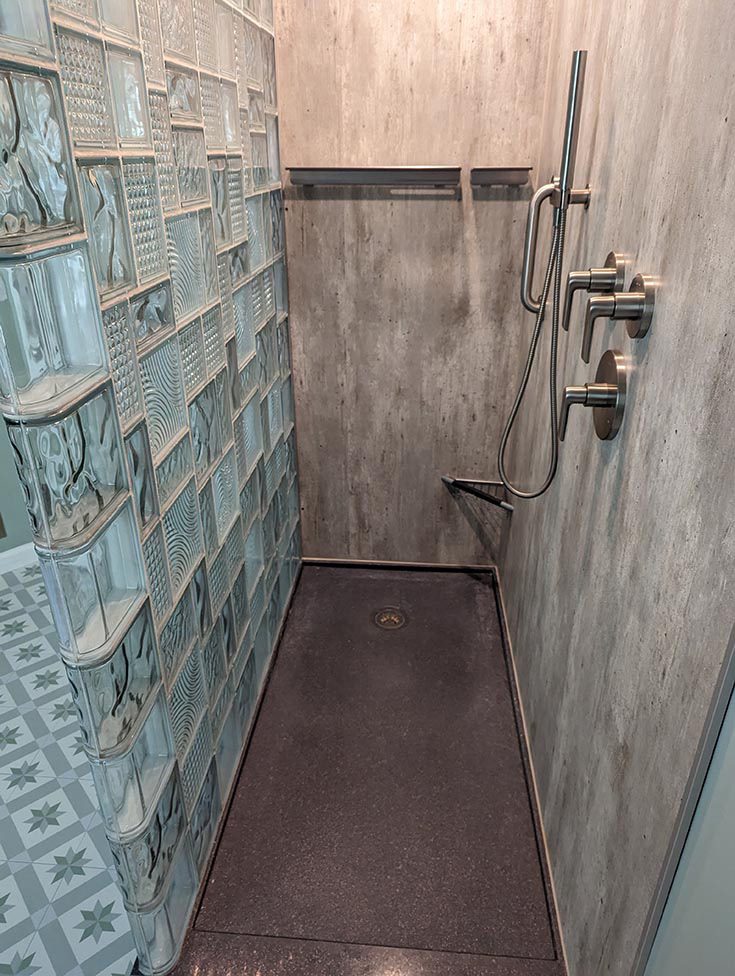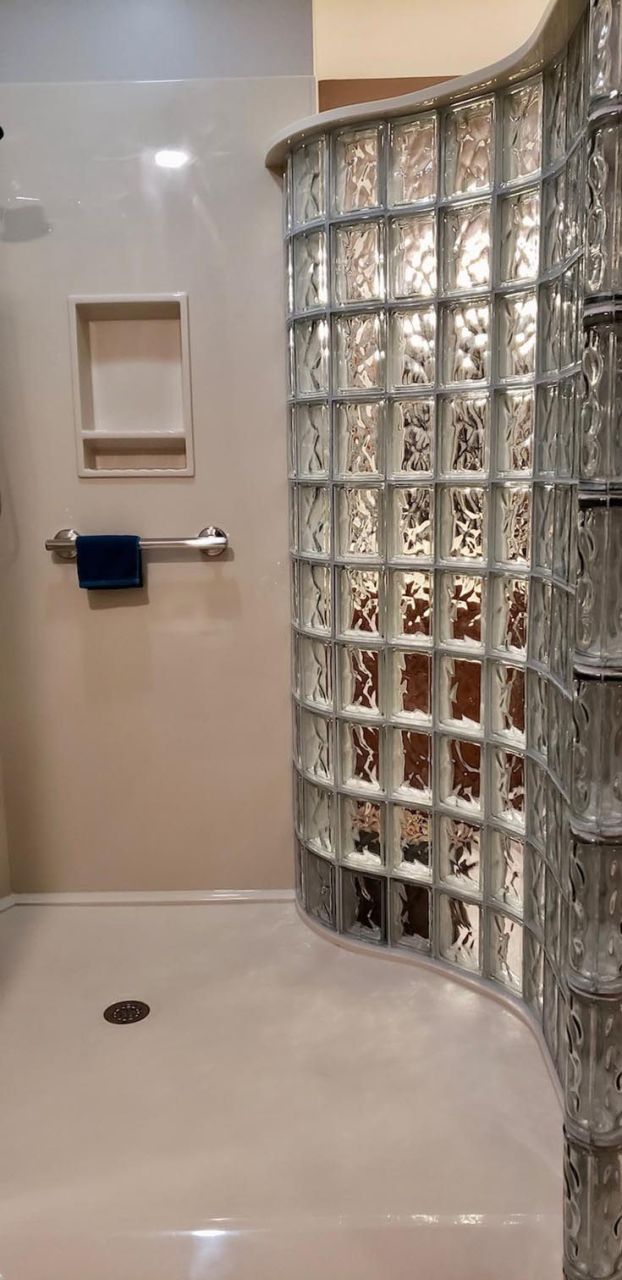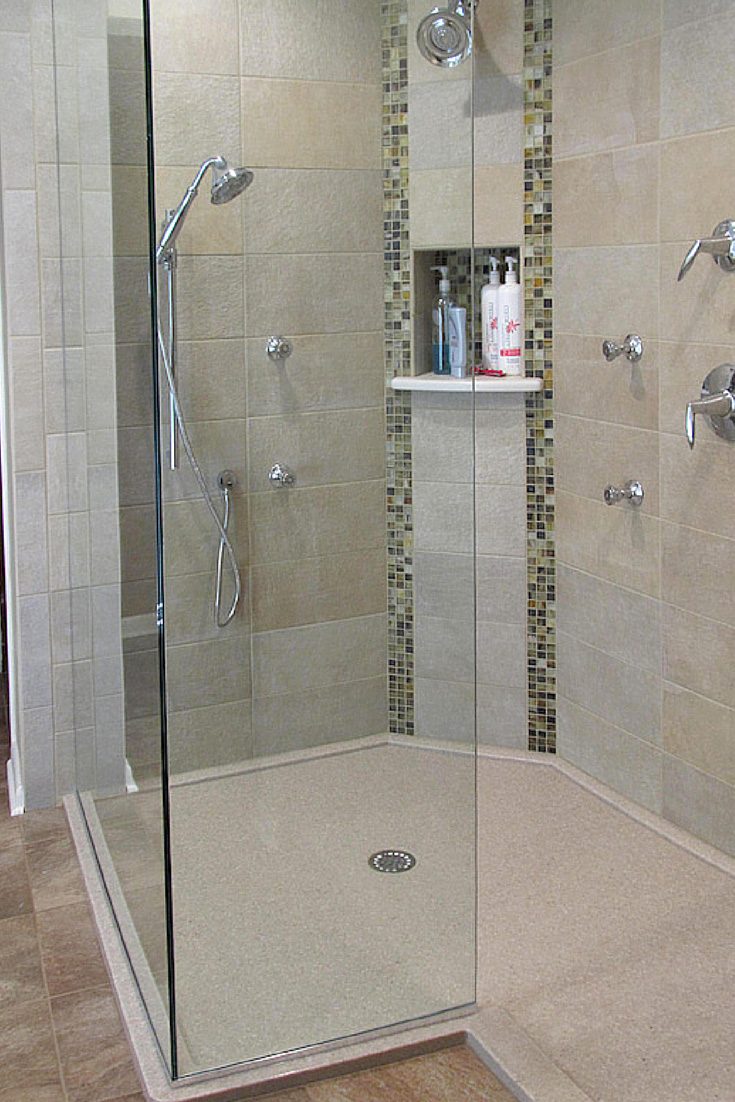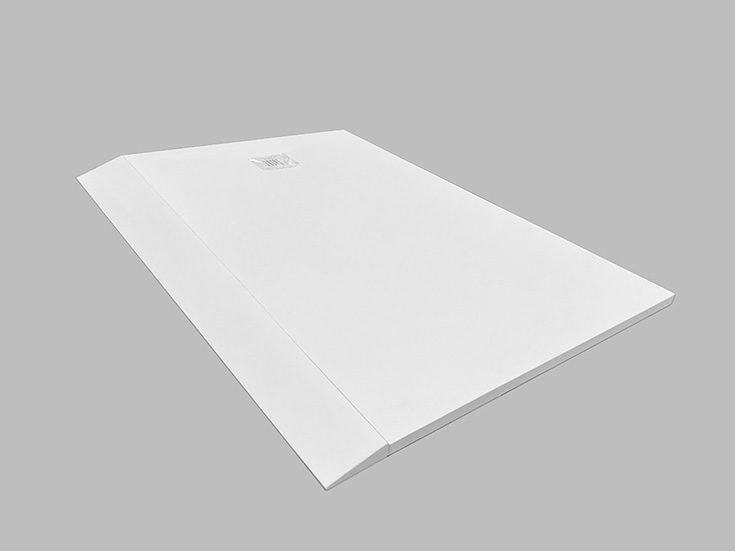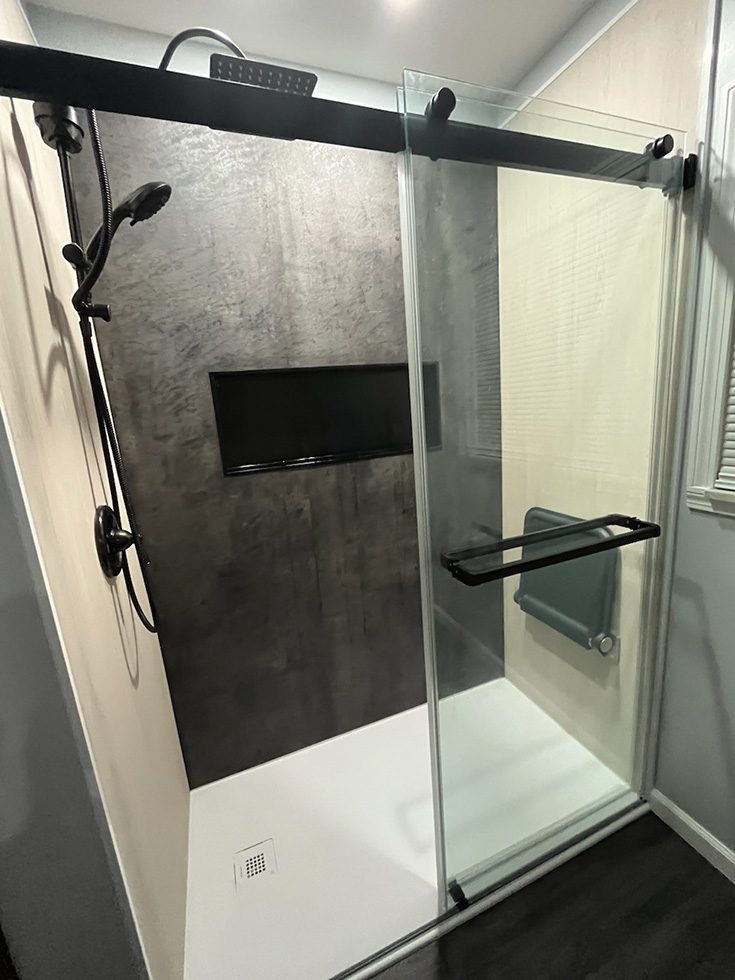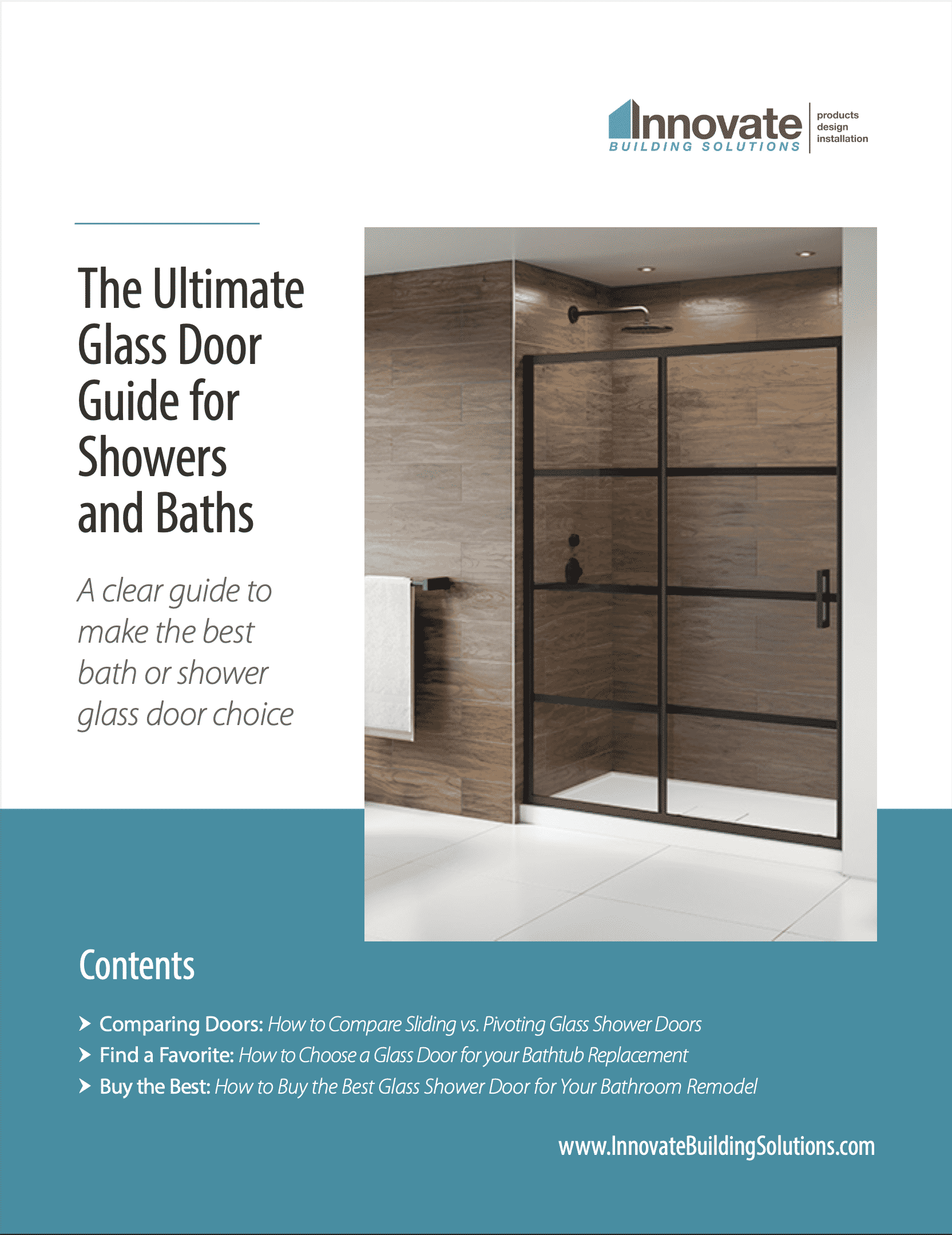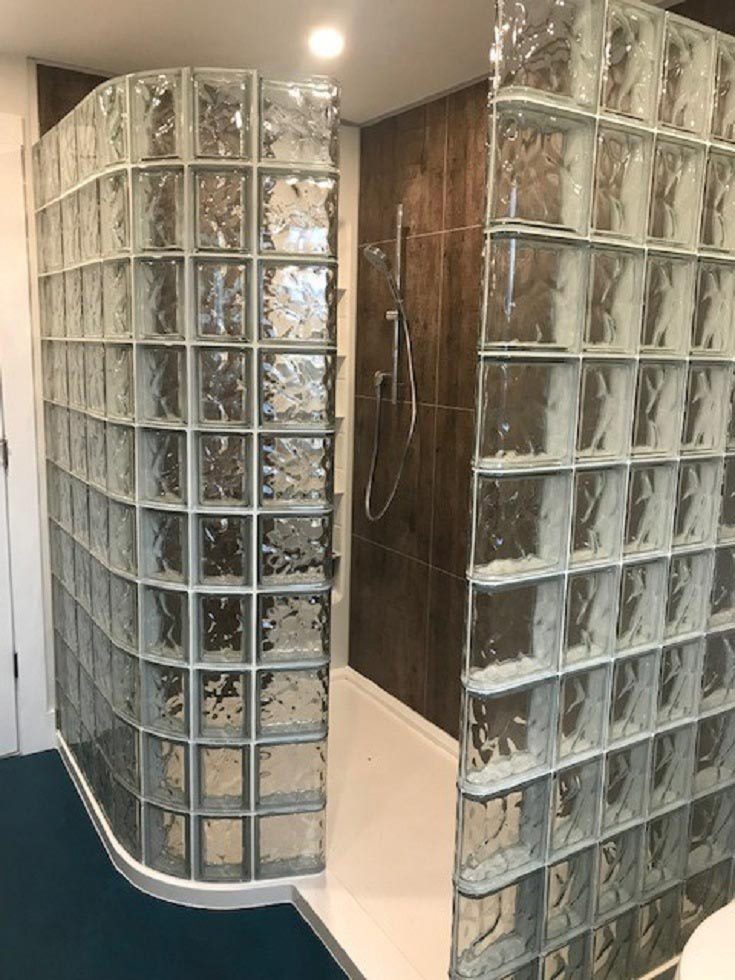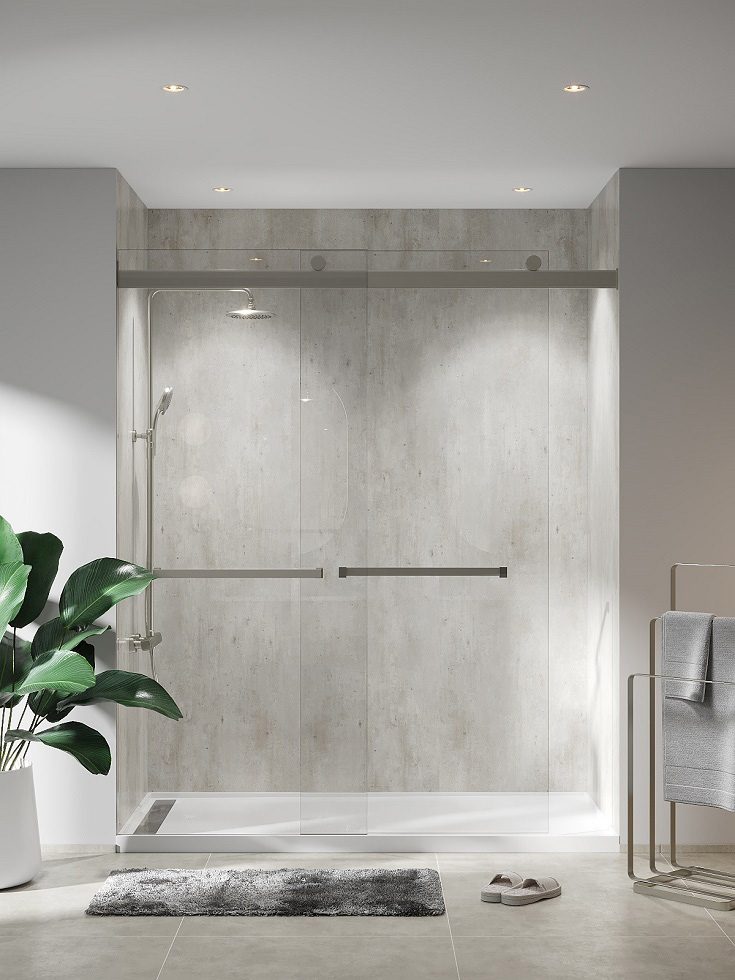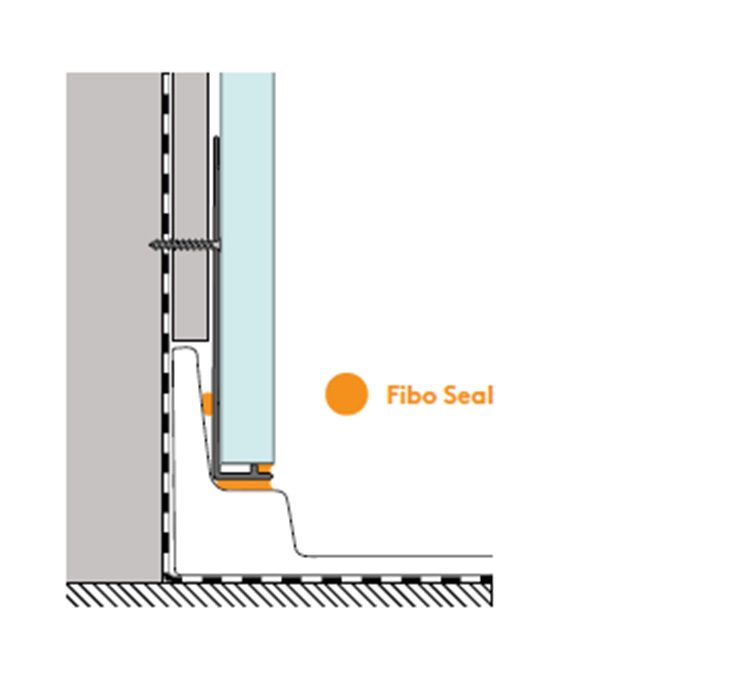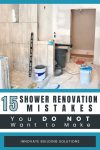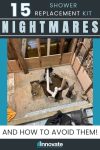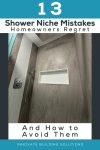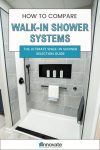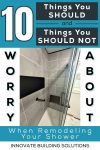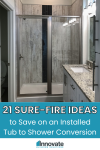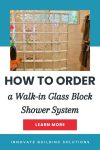Frequently Asked Questions About Offset Shower Pans (and Why You Should Care)
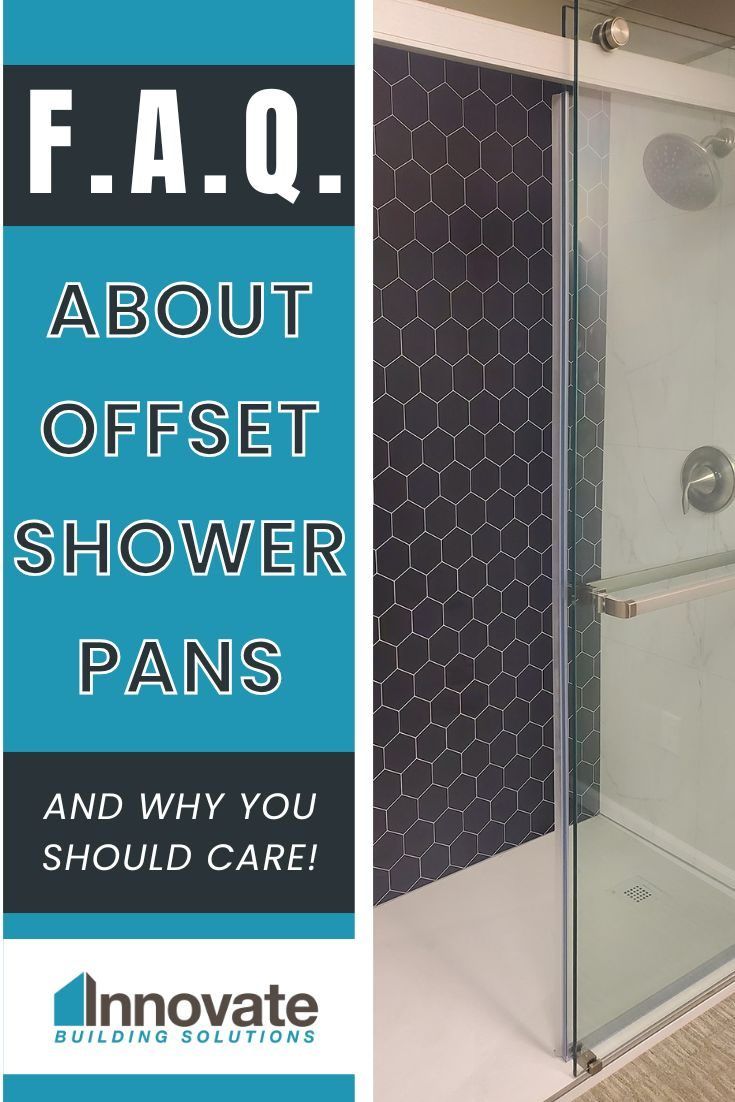
Perhaps you want to do a tub to shower conversion to age in place BUT you also need to keep costs under control.
Or you’ve got a tiny corner shower today you want to expand WITHOUT breaking the bank.
Or you want a roomier (and/or high privacy) shower, but you know one side wall has to be shallower because a window, door, or heating register is in the way. And while you wish you could buy a standard shower pan (and that’s code word for more cost-effective) – your ‘unique’ (and that’s NOT positive in this instance) dimensions aren’t making it possible.
Or you want to replace an existing custom tile shower where the drain IS NOT in the center – and know the cost of moving it won’t be simple (or come without a B-I-G cost and the unpleasant sight of a plumber in the ‘bent over’ position).
And even though you likely don’t know much about them, these are all examples where an offset shower pan will help reduce costs, and improve the design of your new shower.
And since I know most people don’t know much (if anything) about offset shower pans I wrote this article because this type of pan could be exactly what you need for a successful project. And yes, I know it’s NOT the most exciting topic in the world – but you’re also talking to a guy who has written articles about shower drains and tried to NOT make them seem boring….and that takes some work.
So, what can you gain by reading this article?
You’ll learn what an offset shower pan in.
You’ll learn where, and why, to use them.
You’ll learn about shapes and sizes of offset shower pans.
You’ll even learn what materials they’re made of and where to buy standard AND custom offset shower pans.
And if you can’t contain your excitement any longer – I’m going to answer these FAQ’s about offset shower pans RIGHT NOW!
FAQ #1 – What’s an offset shower pan?
An offset shower pan is one where the drain IS NOT in the center of the pan.
An offset pan can be square, rectangular, curved, or have one side deeper than the other.
An offset shower pan can be designed as a doorless walk in shower or use a glass shower door.
FAQ #2 – Where can – or should – I use an offset shower pan?
Here’s the most common places where offset shower pans are used
- For a tub to shower conversion – Offset shower pans are used for bathtub to shower conversions so you can keep the same drain location as the old tub. Tub to shower conversions are often 60” x 30” and 60” x 32” sizes.
- For a walk in shower with a framed wall – The popularity of walk in showers is growing since some people hate maintaining framed glass shower doors, or they want the ease of entering or exiting a shower (especially for an accessible or age in place shower) without a door.
- When you don’t want the cost (or aggravation) to move the shower drain – Perhaps your existing floor is already cut out for a drain which will not work with a standard shower pan with a center drain. These are instances where an offset shower pan can make perfect sense.
- Where you want to use a linear drain. Since linear drains are pitched in one direction – and located near a side wall, near the front of the pan, or the end of a shower pan – they’re examples of offset shower pans (where the drain IS NOT in the center).
- Where your side walls are unequal depths AND you want to maximize the size of the shower– Maybe you’d like the size of your shower pan to be deeper on one side (to give you more elbow room, or to make space for a shower seat or plumbing). Or you’re forced to make one side shallower due to the location of a window, door, heater etc. This is a smart place to use an offset shower pan.
- You’re converting a small corner shower into a larger shower – but don’t want to move the drain – Most corner showers have center drains but when you make them wider, the existing drain location (which is most cost-effective to re-use) is now off-center.
- You don’t want to stand in the middle of the shower drain – Let’s assume you’re doing a shower to shower conversion of a builders-grade fiberglass 4’ x 3’ shower with a center drain and you HATE, HATE, HATE that you currently have to stand in the middle of the drain. This can be an example where you might want to move the drain closer to the side (so you’re not standing in a pool of water when the drain gets clogged).
FAQ #3 – Is an offset shower pan the same as an offset shower drain?
No – these are two totally different products. An offset shower pan is a ‘shower base’ where the drain IS NOT in the center.
An offset shower drain is a type of drain which allows 1 ½” of wiggle room (‘err clearance) to get a drain to work when there’s a joist in the way or a place in your subfloor you don’t want to penetrate for a drain hole).
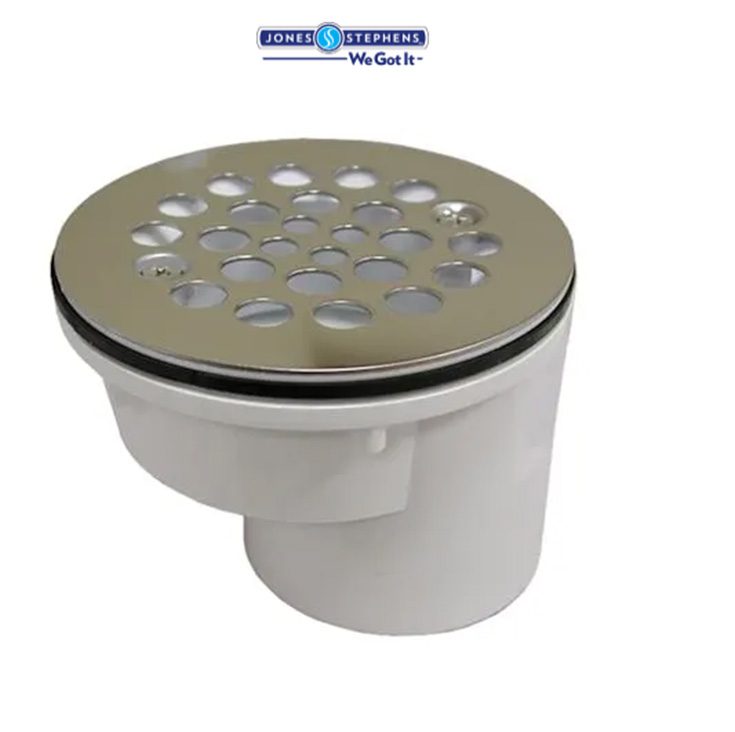
FAQ #4 – What ‘standard size’ offset shower pans are available? What materials do they come in?
The most popular standard size offset shower pans are made for tub to shower conversions in 60” x 30” and 60” x 32” sizes.
With less in-stock availability you’ll occasionally find 60” x 36” offset shower pans (especially with linear drains) or 48” x 32” and 48” x 36” sizes.
Standard sized offset shower pans are available in most every shower pan material. The cheapest offset pan (with side drains) you’ll find are made of fiberglass and acrylic. Sturdier – and more expensive standard offset shower pans are made in solid surfaces. The most expensive offset shower pans are usually (A) those made with tile (especially if you’re having them professionally installed) and/or (B) those which use linear drains (which are more expensive than point drains where all sides of the pan are sloped to one point).
FAQ #5 – Can I get a custom sized offset shower pan? Where would I use a custom offset pan? What materials are they available in? What shape and size options can I get?
There are many types of custom offset shower pans available. Most are made from solid surface or are tiled. There are few options in custom sized offset shower pans made of fiberglass or acrylic because the demand for ‘molds’ in these sizes isn’t large enough.
The top places to use custom offset pans are:
- Where your side walls have unequal depths
- Where the drain location isn’t common (or would be expensive to move)
- Where you want a framed ‘pony wall’ wall on the front or side.
- Where you’re converting a small corner shower into a larger rectangular shower and the drain location for the new base will not be in the center (or available in a standard size).
Custom offset shower pans can be designed for side walls of different depths, can have ‘cut outs’ for a framed wall, can have a curved curb for a glass block walk in shower – or can virtually be made in any configuration to fit your space.
FAQ #6 – How much do offset shower pans cost? When is the best time in the remodeling process to order an offset shower pan?
Offset shower pans can cost A LOT. Or offset shower pans can cost very LITTLE, or they can cost anywhere in between.
And right now, you’re probably thinking, if this isn’t a wishy-washy answer I don’t know what is. And you’d be right – but let me explain.
If you’re buying a standard sized offset shower pan with a side drain (let’s say a 60” x 32” fiberglass pan with a side drain) for a cost-effective tub to shower conversion you can buy a low-end one at a home center for $250 to $350.
And if you want a nicer stone or solid surface shower pan in this exact same size it will cost from $700 to $1,300 dollars delivered to you. The difference between the low-priced and high-priced bases will be the quality of the pan, the ease of cleaning it, and how sturdy it is.
On the other hand – if you do a custom offset shower with a curved curb (let’s say one like you’ll see for this uniquely shaped serpentine glass block wall) – it can cost up to $4,000!
So, offset shower pans are NOT a ONE PRICE FITS ALL situation.
And the best way (and time) to price an offset shower pan is before you demo the old system.
And additionally, the best time to order is after the old tub or shower has been removed, you figure out the size and drain location which’ll work best for the new base. And if you need help call a Shower Specialist.
FAQ #7 – How can I make sure my offset shower pan is simple to clean?
Let’s face it – who likes cleaning showers? ‘Err that’d be NO ONE (except an owner of a grout cleaning franchise whose business profits from cleaning and regrouting tile)!
And there’s no glory in cleaning a shower pan.
However, if you want to make maintenance simpler (especially if your maid or butler still hasn’t shown up…. ha! ha!), stay away from fiberglass and tile offset shower pans (which yellow or get dirty or moldy and are hard to clean).
Instead choose a standard acrylic offset shower pan, a standard solid surface offset pan, or custom solid surface offset shower pans (which also come in 51 patterns).
FAQ #8 – Can an offset shower pan use any size threshold, or have no threshold (or curb) at all for an accessible roll in shower?
There’s no limit to shower curb heights – or threshold designs with offset shower pans. They’re as varied as the number of manufacturers selling shower pans – and there’s A LOT of manufacturers to choose from.
And before you buy any type of shower pan don’t be short-sighted. Consider not only what works for your family today – but also what may be needed in the future.
For example, if you’re coordinating (or DIYing) a bathtub to shower conversion for your elderly mom or dad, aunt, or family member with mobility challenges it’s smarter to choose a low profile shower base – or one which will have a removable ramp option should they need a wheelchair.
FAQ #9 – Can an offset shower pan be supplied with – or without – a glass door or glass wall?
Yes – you’ll see standard sized offset shower pans supplied with popular 60” bypass doors for bathtub to shower conversions.
You’ll also see custom offset pans with no door and a walk in design.
Or you’ll even see custom offset shower pans with curved glass block walls.
Basically – whether you’re a fan of glass walls, glass doors, glass block walls, or no glass at all, an offset pan can be designed for your project.
FAQ #10 – What shower surround walls can I use with an offset shower pan? Is there any special instructions to waterproof them?
There are zero restrictions on the type of wall surrounds you can use with an offset shower pans. So, if you love the design possibilities of tile or stone – go for it. Or if you hate maintaining grout joints, laminate shower surround panels are a thoughtful choice.
Regarding waterproofing – the key is to make sure your tiles – or shower surround panels are installed AFTER the shower pan has been put in. Then make sure your surround materials are INSIDE the flanges of the shower pan like you’ll see in the drawing below.
FAQ #11 – Can I DIY the installation of an offset shower pan?
Installing an offset shower pan isn’t different from installing any other type of shower pan EXCEPT you need to be more careful where the drain is located. And in addition, if you’re planning a cut out for a framed shower wall, make sure to install the framed wall AFTER the pan is installed.
But with all this being said – the most important factor with installing any shower base is to only DIY it if you understand plumbing. If you don’t – this IS NOT a place for beginners to ‘hope’ they did the plumbing right – IMHO.
FAQ #12 – Where can I purchase, or get design assistance with, an offset shower pan?
What’s interesting about offset shower pans is many people don’t even know what they are. And, in addition, if they need a custom offset shower pan they don’t have the slightest clue as to what to do first, when to measure, or where to purchase a higher quality unit.
So, if you’re wondering where you can buy offset pans, here’s what you need to know. If it’s for a ‘standard’ installation (let’s say a tub to shower conversion) you can get them at local home centers (you’ll find the ‘cheap ones’ there), have it supplied by your bathroom remodeling contractor, or buy from a specialty bathroom products dealer who may also have higher quality offset stone shower pans.
However, if you’re looking for a custom offset shower pan –talk to a Shower Specialist who has a deep understanding of shower design and who’ll help you find the right shower pan for your layout and budget.
For nationwide product supply and design assistance call 877-668-5888 or request a Free Design Consultation. For a local Cleveland shower remodeling project with (or without) an offset shower pan call 216-531-6085.
And if you’re looking for a contractor to assist with your project, ask for a referral to one in our dealer network.
Thanks for reading.
Mike
